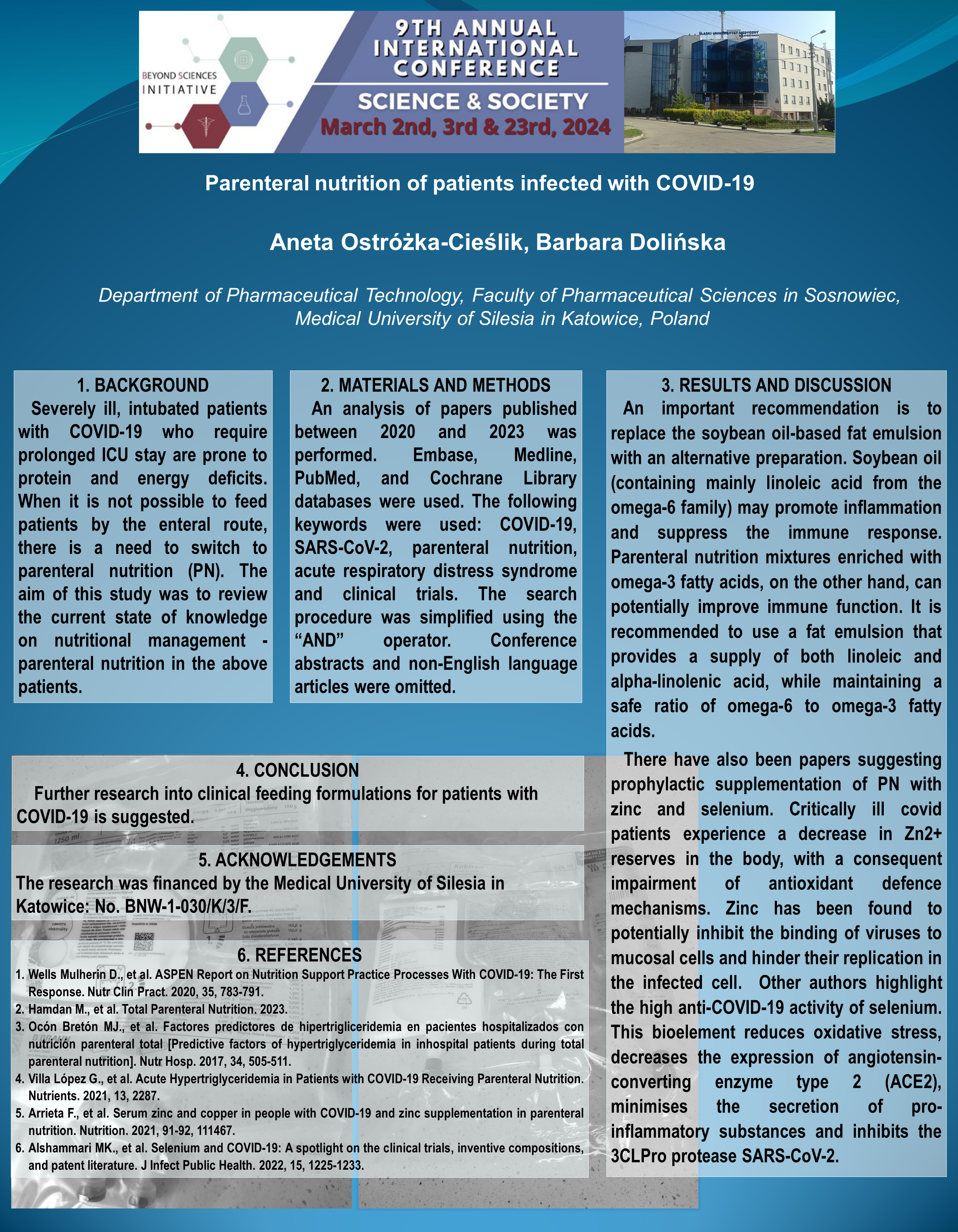Aneta Ostróżka-Cieślik
Conference 2024 Poster
Poster Title
Parenteral nutrition of patients infected with COVID-19
Authors and Affiliations
Aneta Ostróżka-Cieślik, Barbara Dolińska
Department of Pharmaceutical Technology, Faculty of Pharmaceutical Sciences in Sosnowiec, Medical University of Silesia, Sosnowiec, Poland
Abstract
Background
Severely ill, intubated patients with COVID-19 who require prolonged ICU stay are prone to protein and energy deficits. When it is not possible to feed patients by the enteral route, there is a need to switch to parenteral nutrition (PN). The aim of this study was to review the current state of knowledge on nutritional management – parenteral nutrition in the above patients.
Methods
An analysis of papers published between 2020 and 2023 was performed. Embase, Medline, PubMed, and Cochrane Library databases were used. The following keywords were used: COVID-19, SARS-CoV-2, parenteral nutrition, acute respiratory distress syndrome, and clinical trials. The search procedure was simplified using the “AND” operator. Conference abstracts and non-English language articles were omitted.
Results
An important recommendation is to replace the soybean oil-based fat emulsion with an alternative preparation. It is recommended to use a fat emulsion that provides a supply of both linoleic and alpha-linolenic acid while maintaining a safe ratio of omega-6 to omega-3 fatty acids.
There have also been papers suggesting prophylactic supplementation of PN with zinc and selenium. Critically ill covid patients experience a decrease in Zn2+ reserves in the body, with consequent impairment of antioxidant defense mechanisms. Zinc has been found to potentially inhibit the binding of viruses to mucosal cells and hinder their replication in the infected cell. Other authors highlight the high anti-COVID-19 activity of selenium. This bioelement reduces oxidative stress, decreases the expression of angiotensin-converting enzyme type 2 (ACE2), minimizes the secretion of pro-inflammatory substances, and inhibits the 3CLPro protease SARS-CoV-2.
Conclusions
Further research into clinical feeding formulations for patients with COVID-19 is suggested.
The research was financed by the Medical University of Silesia in Katowice: No. BNW-1-030/K/3/F.


Leave A Comment